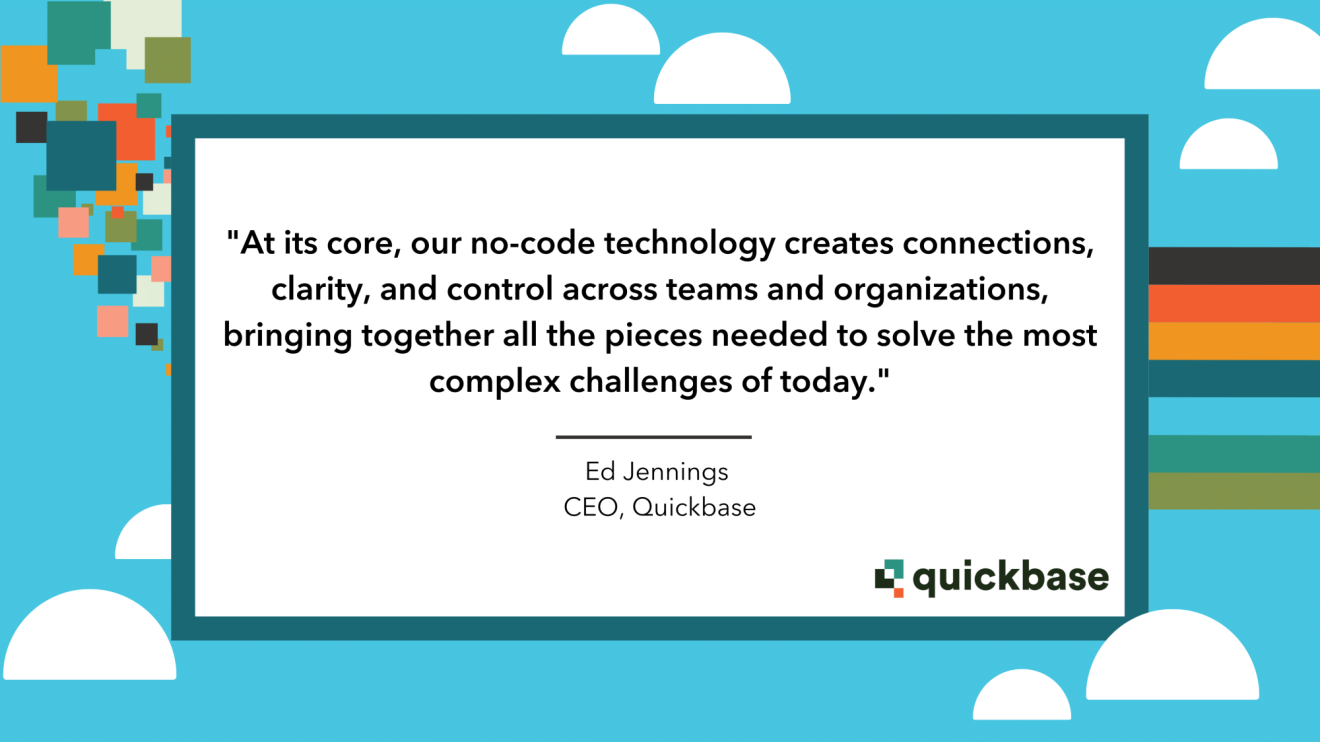
Project managers prioritize efficiency and assurance, crucial for easing stakeholder concerns and ensuring smooth project execution. Despite juggling multiple projects with unique goals and timelines, they navigate challenges like resource allocation, regulations, and budgets.
Effective project management involves setting budgets, tracking expenses, managing resources, and mitigating risks, enabling on-time and within-budget project completion and helping organizations achieve financial objectives.
Why is Financial Management Important?
Within every business, cash flow must be carefully monitored. The cash coming in and out impacts the business’s ability to meet financial obligations—paying employees, suppliers, operating expenses, and any outstanding debts.
Financial data is also a key driver in many business decisions. When it’s time to pull the trigger on investments and expansions or allocate resources, this data prevents decision-makers from flying blind. Through financial management practices like budgeting, forecasting, and cost control, businesses can minimize their costs and maximize revenue.
Why is Budget Management Important?
Budget management is just one component of financial management. However, it’s arguably the most important. Think of it like the foundation of a building. It provides a solid base for the entire project, laying the groundwork for a successful project by outlining financial resources and allocating funds appropriately.
Unfortunately, not even the most well-planned projects are immune to scope creep and roadblocks. A well-managed budget helps an organization manage these hurdles and make decisions that drive profitability and growth.
Related: Maximizing Budget Efficiency in Enterprises: A Guide to Financial Management Software
The Role of Project Management Software in Financial Management
Now let’s talk about financial management’s secret weapon: project management software. It’s a suite of tools that helps streamline project planning, execution, and monitoring. Project management software offers various features that come in handy when you’re trying to keep a project on track including task management, resource management, reporting, and workflow management.
Integrating project management software with your financial management processes can revolutionize your project outcomes. How? By tracking your budget, logging expenses, generating invoices, and creating financial reports.
Project management software for budget management helps you keep your projects moving while monitoring the finances. Many tools allow you to break down costs into categories and track actual costs incurred against the budgeted amounts in real-time. If a project is in danger of outpacing its budget, you’ll know ahead of time so you can make changes. In fact, organizations that use project management software experience up to 28 percent less budget overrun on projects.
Project management software also helps keep cash flowing through your business. As teams complete project milestones, the software can generate invoices. By connecting your invoicing and accounting systems to your project management tool, you can make sure clients and suppliers pay on time. Gone are the days of forgotten invoices and late payments.
The Role of Budget Management
Accurate budgets lead to completed projects and happy clients. Having the right project management software is the key to meticulous financial forecasting. Project managers must be able to create detailed, realistic budgets. To do this, they need historical data, resource costs, and task breakdowns at their fingertips. If they can anticipate roadblocks based on previous projects, they can better mitigate the risks.
The benefits of project management in finance are endless—project management tools offer comprehensive expense and revenue tracking capabilities. Real-time insights into project financials allow project managers to cut costs, optimize resources, and identify opportunities to grow revenue.
Best of all, project managers can feel confident in their data. Aggregating data across systems is a headache for many PMs. With the right project management software, they don’t have to worry about errors, double entry, or spending hours pulling reports to get a clear financial picture. Before a project is complete, PMs also get a preview of the project’s predicted profitability and impact on revenue.
Boosting Efficiency and Cost Savings
Manual processes are a powder keg for projects. Even the most minor error in a dataset or budget can set off a chain of events that impact a project’s outcome. This might mean suppliers can’t procure the needed materials or the company can’t take on additional projects as planned. On average, companies lose 20 to 30 percent of their annual revenue due to inefficiencies in manual processes.
Project management software for budget management streamlines financial workflows. By automating repetitive tasks, reducing manual entry, and facilitating seamless collaboration, companies can cut costs and improve resource utilization. Not to mention, project management software significantly reduces administrative overhead and decreases the likelihood of those costly errors.
Cost-Saving Project Management Tools
Here are a few project management tools to consider:
Quickbase
Quickbase is a no-code platform that helps companies make complex tasks like financial management simple. No matter your industry, Quickbase offers Dynamic Work Management solutions that are customizable to fit your business.
Benefits:
Easily create, connect, and customize applications to fix visibility and workflow gaps so you have control of every dollar
Sync data from your ops system to proactively identify resource gaps
See change orders before they occur so you can make adjustments to timelines and budgets
Microsoft Project
Microsoft Project offers a powerful, easy-to-use app for keeping projects on track. It gives project managers access to advanced financial data and budget management functionalities so they can reign in projects when needed.
Benefits:
Track project costs including labor, materials, and other expenses
Plan and forecast resource needs across multiple projects and track actual resource costs against budgeted amounts
Create customizable reports to track project financials and get at-a-glance financial updates
Wrike
Wrike streamlines work processes across departments to empower collaboration and efficiency. Project managers can keep a tight grip on their finances, all from a single source of truth.
Benefits:
Set cost baselines and track variances to identify potential budget overruns early on
Maximize resource utilization by assigning work based on availability
Create visual dashboards and charts for at-a-glance updates
Risk Management and Forecasting
Tackling a new project shouldn’t feel daunting. Imagining all the ways a project can go wrong is enough to make any project manager spiral. With a project management tool, PMs can get a step ahead of risks and financial forecasting.
Project management software is a powerful tool for identifying and mitigating financial risks. Potential threats like budget overruns, resource shortages, and market fluctuations are significantly easier to manage when teams are aware of them from the start of the project. Project managers can take proactive measures to neutralize any threats and keep them from derailing the project’s financial health.
Forecasting is also a valuable feature. Through project management software, PMs can see historical project data and identify financial trends. When it’s time to make important decisions and prepare their teams for potential hurdles, project managers have the data they need to steer everyone in the right direction.
Enhancing Collaboration and Communication
Financial teams may sometimes feel like they’re working on an island. Unless issues arise with a project’s expenses or budget, the financial team may have little interaction with the project team.
Project management software for budget management acts as a bridge, giving finance teams greater visibility. It’s a centralized platform where teams can share financial data, budgets, and reports. Not only does this help eliminate data silos, but it ensures everyone is communicating and working from the same financial information.
Project management software is also a powerful tool for collaboration. Many solutions offer built-in features like document sharing, messaging, and video conferencing. Stakeholders, including financial teams, can communicate in real-time, promoting transparency and accountability throughout the project.
Real-Life Case Studies
Want to see the benefits of project management in finance? These case studies speak for themselves.
Cooper Construction Services
Cooper Construction Services, a 50-person construction company that manages $10-$20 million in project per year, needed a way to track varying pay rates for its contractors. Calculating fringe wages was nearly impossible with spreadsheets.
Using Quickbase, Cooper developed a time card app to automate the management of employee compensation and fringe wage data. This helped the company ensure each employee was paid based on the correct wage, without the need for manual calculations in a spreadsheet.
Results:
$20,000 annual savings in payroll taxes
Fewer staff hours spent on manual data entry
Streamlined workflows and business processes
Presti & Naegele
Similar to Cooper, Presti & Naegele used spreadsheets to help their clients manage their financial data. The firm needed a better way to manage and track the accounting services they were providing, and manual spreadsheets fell short.
By creating a customer relationship management (CRM) app, Presti & Naegele has seen gains in productivity and profits. The firm can access customer interaction data along with insights on which clients would benefit from an update to their accounting software.
Results:
Increased revenue from optimized CRM data and 30-40 new clients each year
Secure access to passwords and login data
Productivity improvements with centralized access to data
The Bottom Line
Project managers ensure smooth project execution by focusing on efficiency and addressing stakeholder concerns. They handle resource allocation, regulations, and budgets across projects. Effective management includes budgeting, expense tracking, resource management, and risk mitigation, aligning financial initiatives with business strategy. Using project management software enhances financial outcomes and efficiency.
Ready to simplify the way you manage projects and keep budgets on track? Request a free trial of Quickbase today!




